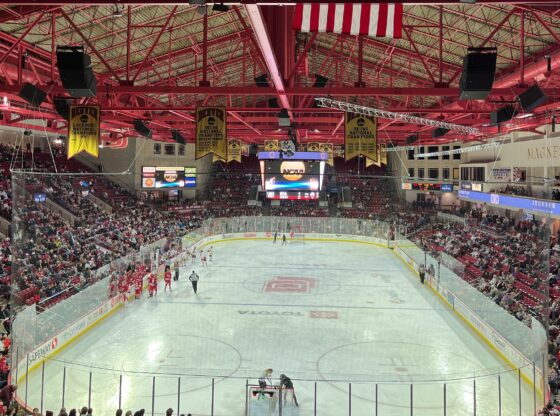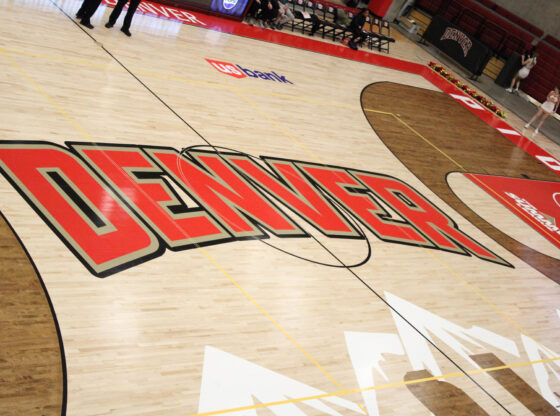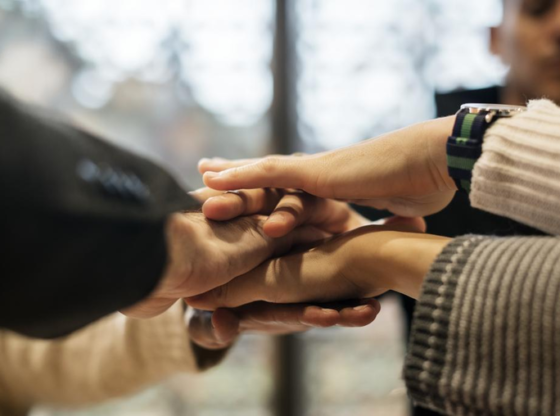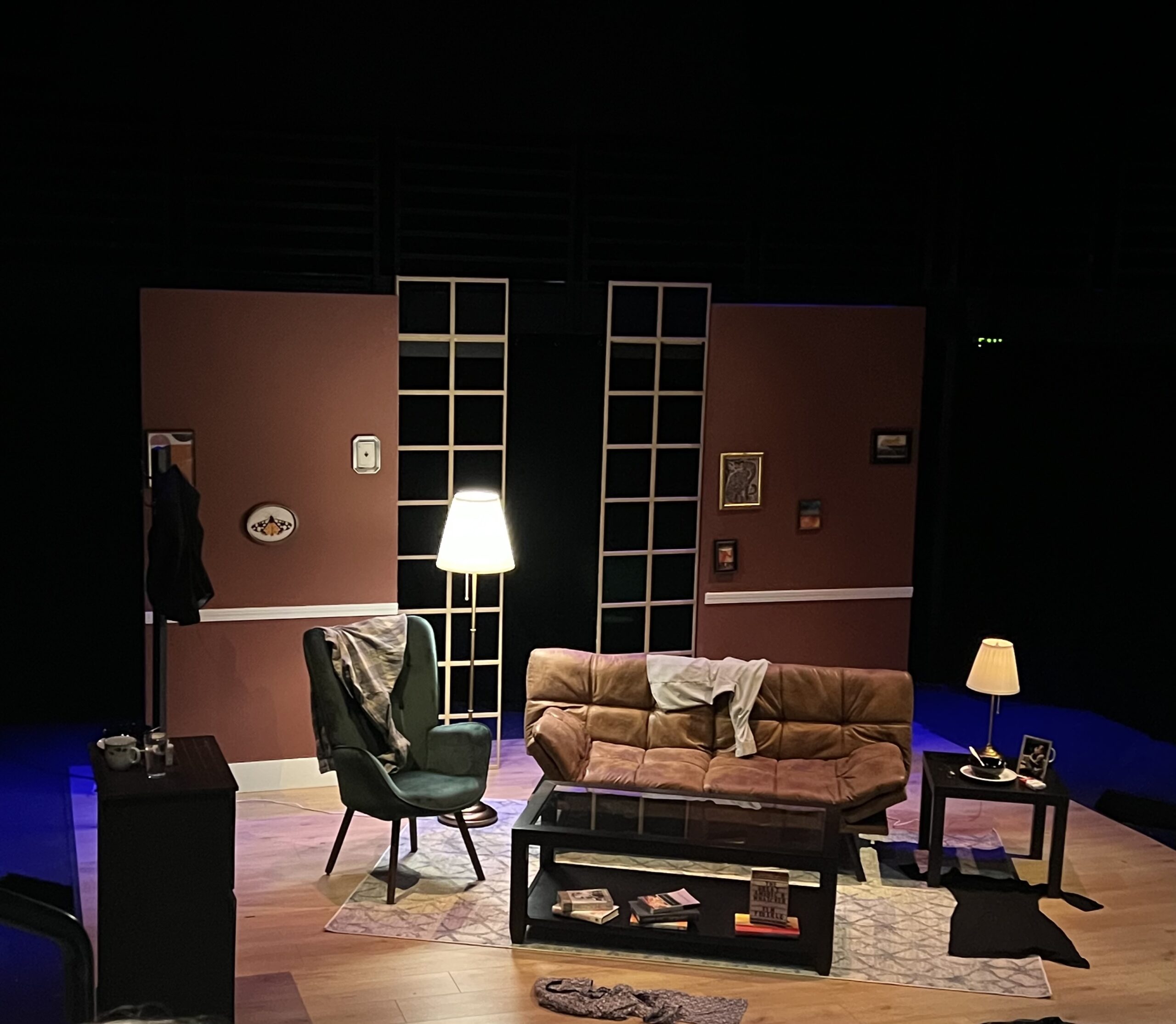Food pantries may be the norm for fighting food insecurity, but communal fridges are the future.
In cities like Denver, the pandemic has exhausted resources for providing food to those in need. A determined group from the University of Colorado Denver’s Women and Gender center has been working to combat this reality. Through their efforts, they have introduced community fridges to the metro area.
The concept is used across the country, and it is similar to looking through the fridge in your own home. Those in need have the agency to comb through and find what food meets their meal preferences and dietary needs. This is a testament to mutual aid networks withstanding the trying time of the pandemic and providing for those experiencing food insecurity.
Mutual aid is rooted in solidarity within a community, rather than a one-way charitable relationship. It is reliant on people taking responsibility for the betterment of their own neighborhood by understanding that everyone has something to give. They can lean on each other rather than relying on institutions.
Eli Zain came up with the idea of installing community fridges last summer, and since then, they and their colleagues have worked to make it a reality. Currently, they have four fridges up and running, and this project continues to gain traction. With over 5,000 followers on Instagram, social media has been a successful outlet for reaching the masses. Their daily postings receive questions from community members about how they can support the fridge project and provide resources.
The Community Fridge initiative encourages community members to support one another by dropping off ready-to-eat dishes or even fresh produce, which is not often found at food pantries. Executive chefs have contributed by making restaurant-quality meals to stock the fridge while neighbors have added extra items to their grocery list that can go straight to these fridges as well.
As a result of the harm that COVID-19 causes, people are in need of more resources than ever. This means bare fridges after a full day of stocking. Even with the addition of more shelters, volunteer groups and these fridges, there is still a significant amount of people not receiving proper financial support during this precarious time.
In an interview with 9 News, the CEO of the Food Bank of the Rockies, Erin Pulling, stated the rates of food security are at unprecedented levels. “We’re serving many people who have lost their jobs and are facing food insecurity for the first time. More than 30% of the people [who] we are serving report never needing food assistance before this. Families and individuals who were already vulnerable have found themselves in dire need.”
Whereas it is Zain’s team that plans out the next fridge location and background logistics, it is other volunteers who opt to help stock the fridges, clean and clear them (if there is expired food). This budding idea requires the efforts of many, and Denver locals are stepping up to the responsibility.
While this project strives to address issues of food insecurity, it has gone beyond that. The project aspires to reduce food waste, destigmatize food assistance, and support the unsheltered. Zain hopes that instead of being cruel or avoidant to those experiencing homelessness, people will approach them and provide direction to these fridges. Their team believes that food is a human right rather than a luxury.
Zain has also been deliberate with ensuring accessibility. They brought in local artists to liven up the fridge walls and add bursts of color. By doing this, they want to eliminate the shame that is often associated with getting assistance. These vibrant fridges can be opened at all hours of the day, so when those struggling with food insecurity need food, it’s waiting for them.
These fridges are meant for all and taken care of by all. Their rules are minimal and reiterate being a good neighbor. It includes: giving what you can, taking what you need, cleaning and organizing as you come and go, and labeling all prepared food. The only two main prohibited items are raw meat and alcohol.
A number of landlords have denied the opportunity for businesses to partner with the Denver Community Fridge Project. Amethyst’s Broadway location landlord presumed that these fridges might cause a disruption to the neighborhood and thereby refused to implement them.
Despite this hostility, Zain hopes more outlets adopt mutual aid. However, some argue that mutual aid looks a bit different than what these fridges offer. An op-ed by Rae Gomes from Civil Eats, an esteemed news source that critically evaluates the food systems in America, questions where the reciprocity is in this model. One side is giving while one side is receiving, which she argues is charity.
She asks about the implications if volunteers stop giving. Will the government step in? The harsh reality that Denver’s unhoused are reliant on charity for access to food, a basic human right, is a poor reflection on the state’s treatment and protection of its marginalized citizens.
The city has pushed back against these fridges due to an inability to regulate them. In response, Denver’s community fridges organization has taken a firm stand on being “anti-cop, anti-establishment, anti-capitalist and anti-racist,” according to Zoya Sarow, a DU alum and artist coordinator for the fridges.
Sarow says, “We have to unlearn the ways that have become accustomed to us in terms of community service. People think it is all on the community organizers. You ask them and they do it all for you, but it’s on all of us.”
They and the rest of the fridge members are strong advocates for solidarity in communities where providing equal access to healthcare should be a value in society.
Even in this time of separation, the community fridges are addressing the issues of food insecurity and homelessness by calling on connection and camaraderie. While these fridges offer some relief for those struggling with food insecurity, it is only the beginning to highlighting Denver’s systemic issues of disparities in health, wealth and equality.











